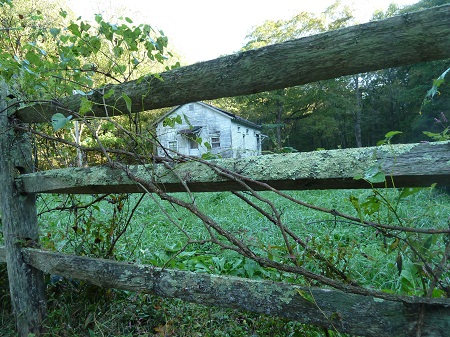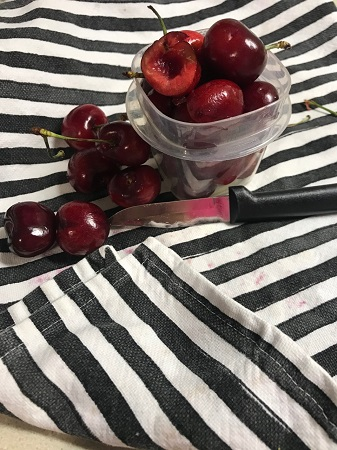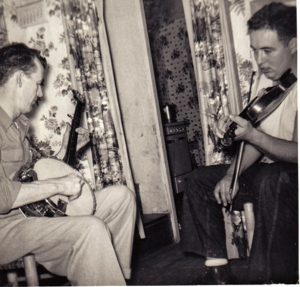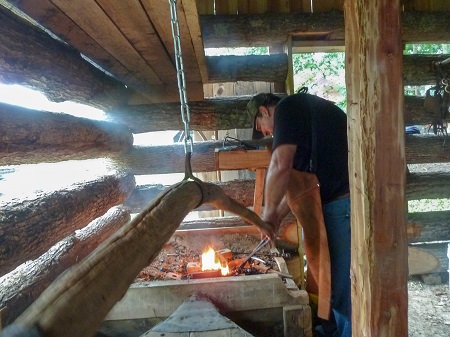If It Ain’t Broke, Don’t Fix It
 Have you noticed how often we change our lives? We try to improve ourselves, other people, or our possessions. A desire to improve can be a wonderful idea. However, if it ain’t broke, don’t fix it. (I apologize for the poor grammar, but that is the way we say it.)
Have you noticed how often we change our lives? We try to improve ourselves, other people, or our possessions. A desire to improve can be a wonderful idea. However, if it ain’t broke, don’t fix it. (I apologize for the poor grammar, but that is the way we say it.)
If it ain’t broke, don’t fix it tells us to leave things alone if they work well.
A word to the wise: Why cause problems if we have no need to change?
Small children who take things apart often fail to put them back together. So can we as adults. (Ask me about my one and only effort at plumbing.) When we try to fix something not broken, we may fail to get it to work again.
We often try to fix our lives with the newest, best, and most expensive of everything.
- Cellphones
- Laptops
- Televisions
- Cars
- Houses
- Clothes
- Shoes
- Appliances
And the list keeps growing.
We give away, sell, or throw away perfectly good items to buy similar items to take their place.
As a result:
- We stay in debt.
- Landfills grow larger with all our trash.
- We never find satisfaction with who we are or what we have.
Fix what needs to be fixed, but don’t try to correct a problem that does not exist.
We do well when we learn to live well whatever our circumstances. Certainly we want to:
- Take care of our health
- Improve our lives and the lives of others
- Make our world safer
- Stand firm for what is right
Yet, we don’t want to:
- Tear down progress already made
- Hurt others
- Destroy our world
- Compromise what is morally right
When we try to fix what ain’t broken, we get everything out of whack. Instead let’s live in such a way that we and those around us have reason to burst for joy.
“Correct and rebuke your people when they need it, encourage them to do right, and all the time be feeding them patiently with God’s Word” (2 Timothy 4:2 TLB).
Thanks to Charles Smithers for the suggestion.
Do you have an expression you want explained? If so, please comment below.
Subscribe to receive my weekly posts by email and receive a free copy of “Words of Hope for Days that Hurt.”
If you enjoyed this post, please share it with your friends.
 Many in the world have faced difficult circumstances in recent days. A few describe their situation as the pits.
Many in the world have faced difficult circumstances in recent days. A few describe their situation as the pits. “Stay right there. I’ll be back in a jiffy.” I wonder how many parents have said that to a child. Or how many spouses have said that to one another. They don’t want the person to move. They will return quickly
“Stay right there. I’ll be back in a jiffy.” I wonder how many parents have said that to a child. Or how many spouses have said that to one another. They don’t want the person to move. They will return quickly My grandmother often said, “That doesn’t amount to a hill of beans.” In other words, it is not worth much.
My grandmother often said, “That doesn’t amount to a hill of beans.” In other words, it is not worth much. Like several animals (and a few people) dogs can be dangerous when suddenly wakened. Therefore, we usually let sleeping dogs lie. We leave them alone to sleep in peace.
Like several animals (and a few people) dogs can be dangerous when suddenly wakened. Therefore, we usually let sleeping dogs lie. We leave them alone to sleep in peace. Last week we looked at
Last week we looked at  My dad and Uncle Millard differed in many ways. However, they were like two peas in a pod in their love for music.
My dad and Uncle Millard differed in many ways. However, they were like two peas in a pod in their love for music. In addition to shared interests, like Dad and Uncle Millard, two peas in a pod may:
In addition to shared interests, like Dad and Uncle Millard, two peas in a pod may: On April 18, 1775 many people in Boston kept their eyes peeled on the steeple of the
On April 18, 1775 many people in Boston kept their eyes peeled on the steeple of the  They choose a slower, more relaxed lifestyle.
They choose a slower, more relaxed lifestyle. Anthony Salyers demonstrates the work of an old-time blacksmith shop during
Anthony Salyers demonstrates the work of an old-time blacksmith shop during